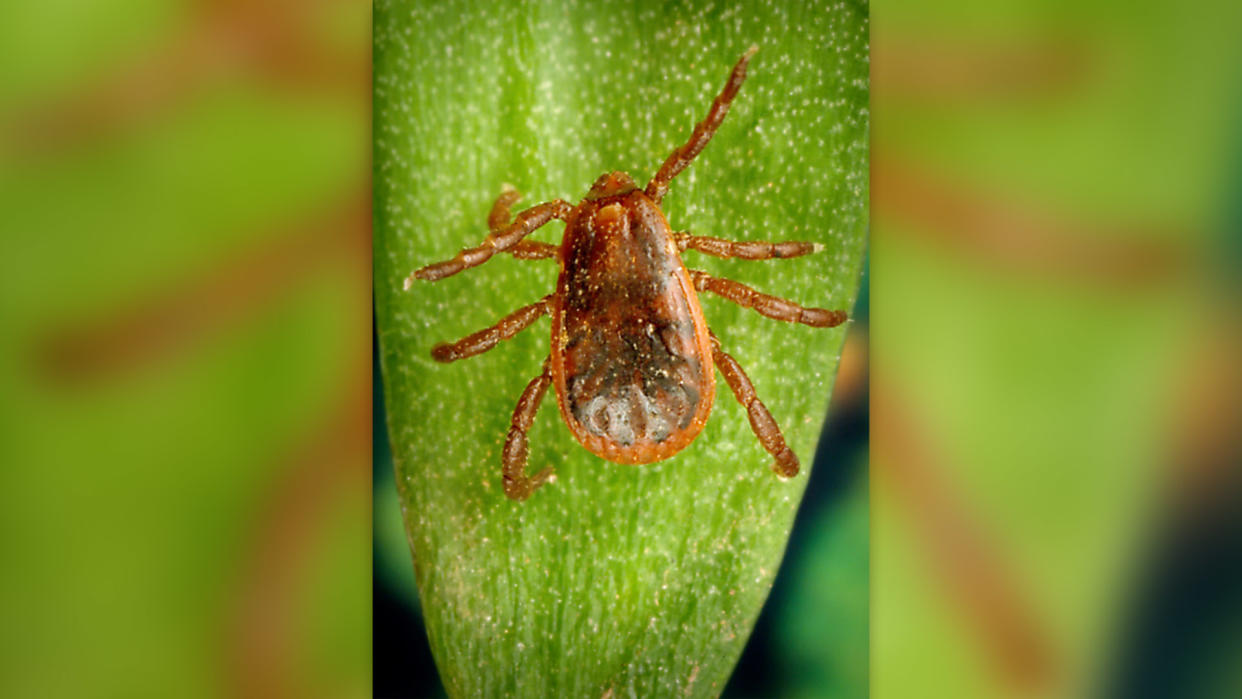Deadly Rocky Mountain spotted fever seen in travelers to Mexico

A potentially deadly disease spread by ticks recently sickened five people who had traveled to or lived in Baja California, Mexico, and three of those patients have died, the Centers for Disease Control and Prevention (CDC) warned.
The disease, called Rocky Mountain spotted fever (RMSF), is caused by the bacterium Rickettsia rickettsii and spreads to humans through tick bites. If left untreated, the infection can rapidly progress and lead to serious complications, including nerve and organ damage, partial paralysis, loss of bladder or bowel control, and gangrene, which may require amputation.
If left untreated, RMSF can lead to death — before effective treatments were available for the condition, case-fatality rates ranged from 20% to 80%.
Between late July and Dec. 8, 2023, the CDC confirmed five cases of RMSF in people who had traveled to or lived in Tecate, Baja California, the agency reported in a health alert published Friday (Dec. 8). Three were U.S. residents, and two were residents of Mexico. They'd all been in Tecate, a city about 40 miles (64 kilometers) southeast of San Diego, within the two weeks prior to developing symptoms, but all were diagnosed and treated in Southern California.
All five patients were hospitalized, and three died.
Related: Your skin should be toxic to ticks. Here's why it's not.
"RMSF is endemic in multiple border states in northern Mexico, including but not exclusive to Baja California, Sonora, Chihuahua, Coahuila, and Nuevo León," the CDC noted. Health care providers should consider RMSF as a potential diagnosis in patients who have recently traveled to northern Mexico and have developed an unexplained fever. U.S. residents should seek medical attention if they or a family member has recently traveled to northern Mexico and developed a fever, headache or rash within two weeks of returning to the U.S.
Doctors should consider starting these patients on the standard treatment, the antibiotic doxycycline, if their symptoms and travel history point to RMSF. "Do not delay treatment pending the result of a confirmatory laboratory test," the CDC advised. "Early treatment with doxycycline saves lives."
The early symptoms of RMSF resemble those of many other diseases, making it tricky to catch early.
These initial symptoms include fever, headache, loss of appetite, vomiting and stomach pain. In most people, the infection also causes a skin rash that often starts on the wrists and ankles before spreading to the rest of the body. The rash doesn't typically emerge until days after the fever starts, and it may change appearance throughout the illness, looking like red blotches or pinpoint dots, for example.
If not treated promptly — within five days of the first symptoms — RMSF can start to cause confusion, shortness of breath, numbness, weakness or seizures. At that point, the most serious complications that can lead to lifelong disability or death can occur.
In 2022, doctors reported 88 cases of RMSF in the Baja California region, and 36, or 47%, were fatal, according to the California Health Alert Network. By comparison, there was one probable and one confirmed case among San Diego County residents in 2022, and no deaths.
"Half of all people who die from this disease succumb within 8 days of illness onset," the CDC alert states. "Untreated disease is often fatal." The case-fatality rate for treated RMSF, however, is around 3% to 5%.
RELATED STORIES
—Tick-borne parasite is spreading in the Northeast, CDC says
—9 out of 10 ticks in this Pennsylvania park carried a potentially fatal neurological virus
—Dog ticks prefer humans as hosts when temperatures rise
RMSF is not unique to Mexico. Three tick species spread the disease within the U.S. Cases are most commonly reported in North Carolina, Tennessee, Missouri, Arkansas and Oklahoma but occur throughout the country. Between 3,000 and 7,000 cases of RMSF and other types of spotted fever rickettsioses are reported in the U.S. each year; these conditions can be difficult to differentiate with available diagnostic tests.
People can protect themselves from RMSF, whether at home or abroad, by taking measures to prevent tick bites and regularly checking their dogs for ticks.
Ever wonder why some people build muscle more easily than others or why freckles come out in the sun? Send us your questions about how the human body works to community@livescience.com with the subject line "Health Desk Q," and you may see your question answered on the website!

